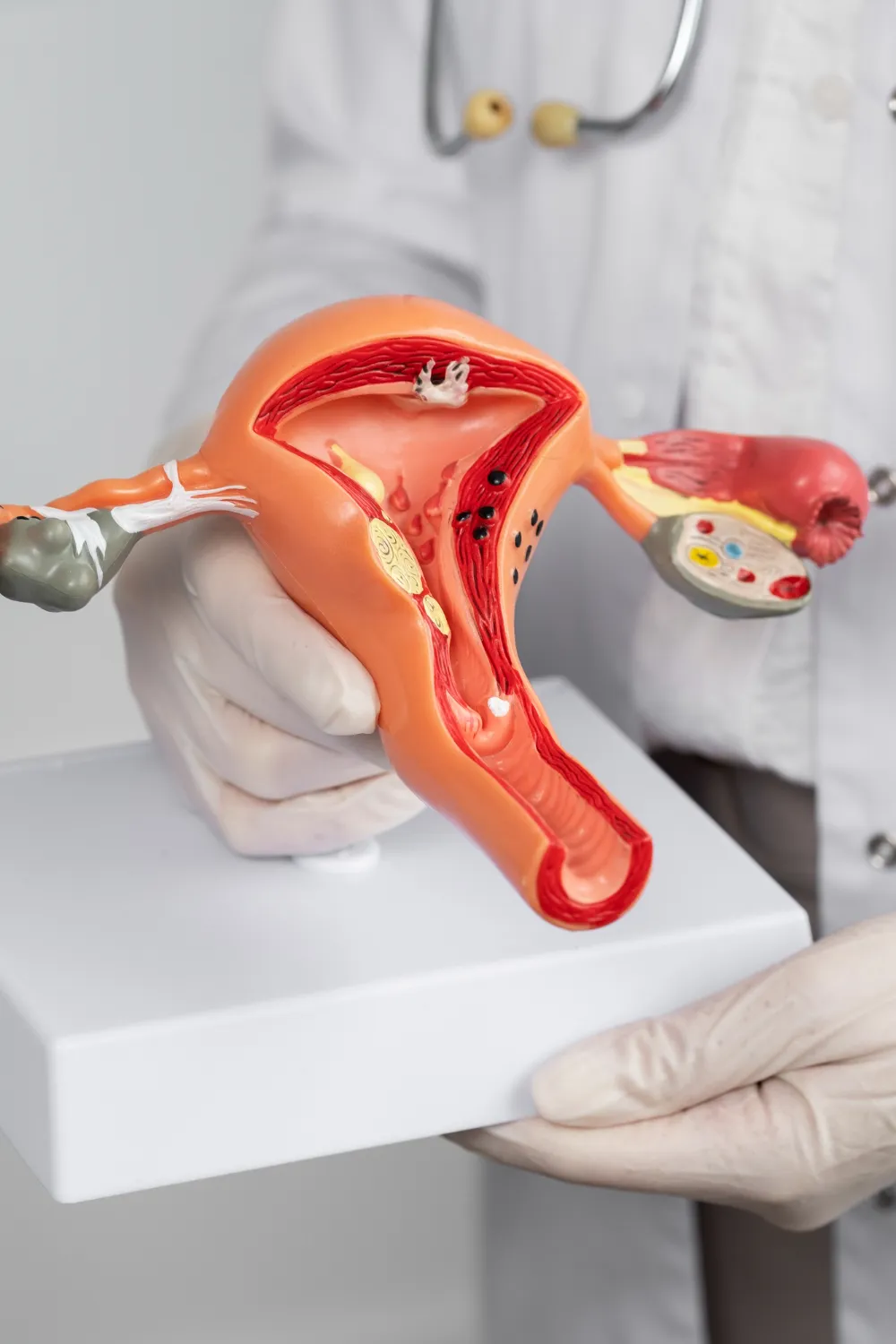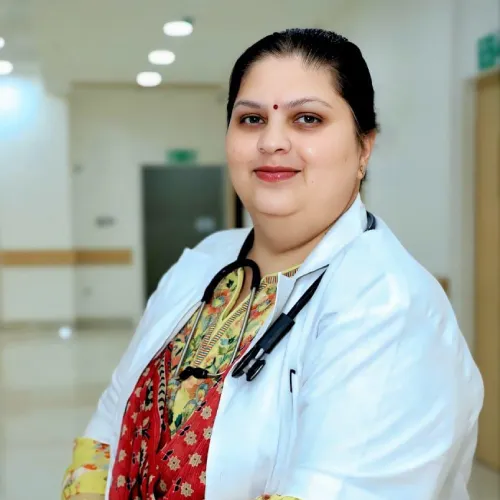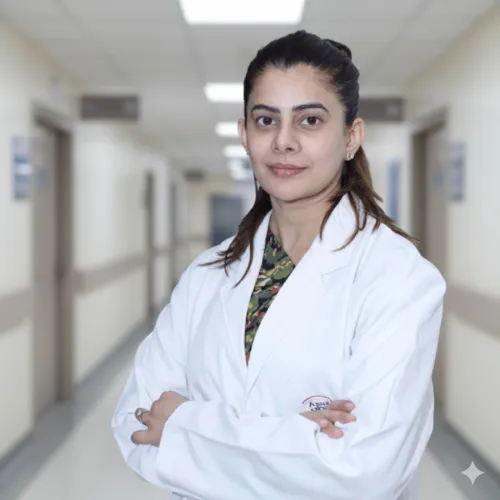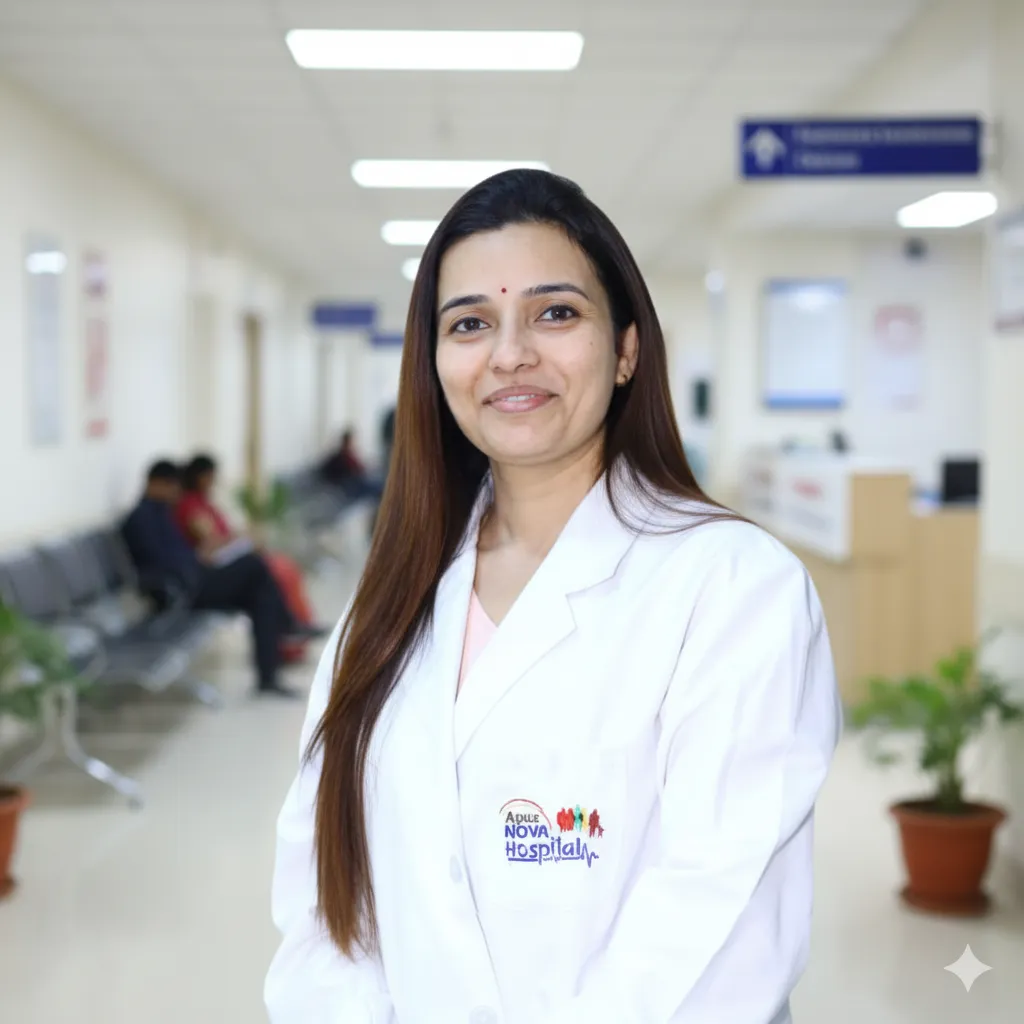What are Ovarian Cysts?
Ovarian cysts are fluid-filled sacs that develop on or inside a woman's ovary. They are incredibly common, and most women will develop at least one during their lifetime. The vast majority of ovarian cysts are harmless (benign) and often disappear on their own without treatment.
However, some cysts can cause symptoms like pain and bloating. In rare cases, they can be a sign of a more serious condition. That's why professional evaluation and monitoring are important. At the Nova Hospital Meerut gynecology department, we provide expert diagnosis and personalized care for all types of ovarian cysts.
Common Causes of Ovarian Cysts
Most ovarian cysts are "functional," meaning they form as a normal part of the menstrual cycle. Other causes include:
- Hormonal Imbalances: Problems with hormones can lead to the formation of certain types of cysts.
- Pregnancy: A cyst normally forms in early pregnancy to help support the pregnancy until the placenta forms.
- Endometriosis: Women with endometriosis can develop a type of cyst called an endometrioma.
- Pelvic Infections: Severe infections can spread to the ovaries and cause cysts to form.
Symptoms of Ovarian Cysts
Many ovarian cysts cause no symptoms at all. When symptoms do occur, they can include:
- Pelvic pain — a dull ache or a sudden, sharp pain.
- Bloating, pressure, or a feeling of fullness in the abdomen.
- Pain during intercourse.
- Painful menstrual periods or changes in your cycle.
- A frequent need to urinate.
- Difficulty emptying your bladder or bowels completely.
Seek immediate medical attention if you have sudden, severe abdominal pain, fever, or vomiting, as this could be a sign of a ruptured cyst or ovarian torsion.
Advanced Diagnosis at Nova Hospital
An accurate diagnosis is key to determining the right course of action. Our expert gynecologists use a combination of methods for a thorough evaluation.
- Pelvic Exam: Your doctor can often feel a cyst during a routine pelvic examination.
- Ultrasound: This is the most important tool for diagnosing ovarian cysts. We use high-resolution transvaginal ultrasound to get a clear picture of the cyst's size, shape, and composition (whether it's fluid-filled or solid).
- Blood Tests: A CA-125 blood test may be recommended, especially for post-menopausal women, to check for markers that can be elevated in ovarian cancer.
Personalized Ovarian Cyst Treatment in Meerut
Treatment depends on your age, symptoms, and the size and type of the cyst. Our specialists at Nova Hospital will create a plan tailored to you.
- Watchful Waiting: If your cyst is small, simple (fluid-filled), and not causing symptoms, your doctor may recommend monitoring it with follow-up ultrasounds to see if it resolves on its own.
- Medication: Hormonal contraceptives, like birth control pills, may be prescribed to help prevent new functional cysts from forming.
- Minimally Invasive Surgery (Laparoscopy): If a cyst is large, persistent, causing pain, or appears suspicious, surgery may be needed. At Nova Hospital, we specialize in laparoscopic cystectomy (removing the cyst while preserving the ovary). This minimally invasive technique involves small incisions, less pain, and a faster recovery.
Meet Our Experts in this Field
Why Choose Nova Hospital for Ovarian Cyst Care?
For the best gynecologist for ovarian cysts in Meerut, Nova Hospital is the leading choice for comprehensive and compassionate care.
- Expert Gynecologists & Surgeons: Our team is highly experienced in diagnosing and managing all types of ovarian cysts.
- Advanced Diagnostic Imaging: We use high-resolution ultrasound technology for accurate and detailed assessments.
- Minimally Invasive Surgical Options: Our expertise in laparoscopic surgery ensures better outcomes and quicker recovery for our patients.
- Patient-Centered & Confidential Care: We provide a supportive and private environment where your health and comfort are our top priorities.
Frequently Asked Questions
No. The vast majority of ovarian cysts, especially in pre-menopausal women, are benign (non-cancerous). However, it is important to have any cyst evaluated by a doctor to be sure.
Not always. Many cysts go away on their own. Surgery is typically recommended if the cyst is very large, causing significant pain, doesn't resolve after several months, or if it looks suspicious on an ultrasound.
The primary and most effective way to diagnose an ovarian cyst is through a pelvic ultrasound. This painless imaging test allows your doctor to see the size and characteristics of the cyst clearly.
Laparoscopic surgery is a minimally invasive "keyhole" surgery. The surgeon makes a few small incisions in the abdomen and uses a tiny camera and specialized instruments to remove the cyst. This leads to less scarring, less pain, and a much faster recovery than traditional open surgery.
Most common (functional) cysts do not affect fertility. However, cysts caused by conditions like endometriosis or Polycystic Ovary Syndrome (PCOS) can be associated with fertility challenges. Our specialists can provide a full evaluation.
You can easily book a consultation with one of our expert gynecologists by calling our appointment line at +91-70550 06662.



